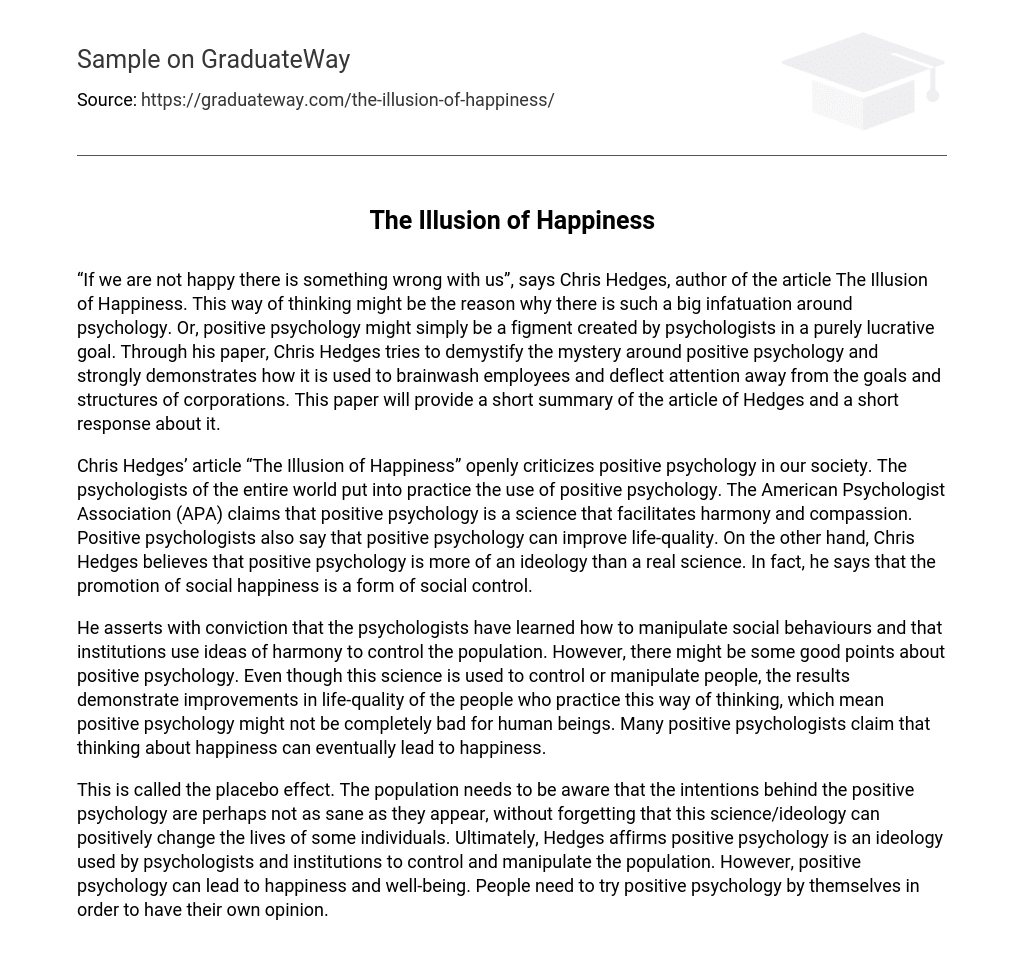In his article “The Illusion of Happiness,” Chris Hedges suggests that feeling unhappy is seen as a personal flaw, which contributes to society’s interest in psychology. He also questions whether positive psychology is merely a fabrication created by money-driven psychologists. Hedges aims to demystify the notion of positive psychology and demonstrates how it can be used to manipulate workers and distract them from corporate goals and systems. This paper seeks to summarize Hedges’ article and provide a brief personal reaction.
In his article “The Illusion of Happiness,” Chris Hedges openly critiques the prevalence of positive psychology in our society. The use of positive psychology is widespread among psychologists worldwide. According to the American Psychologist Association (APA), positive psychology is a scientific approach that promotes harmony and compassion. Positive psychologists suggest that it can enhance quality of life. However, Hedges argues that positive psychology is more of an ideology than a genuine science, suggesting that the pursuit of social happiness is a means of exerting social control.
The author firmly states that psychologists have acquired the ability to manipulate social behaviors and that institutions exploit notions of harmony to govern the population. Nonetheless, positive psychology may possess certain advantageous aspects. Despite its utilization as a means of control or manipulation, the outcomes reveal enhanced life quality for individuals who adopt this mindset, suggesting that positive psychology might not be wholly detrimental for humans. Numerous positive psychologists contend that contemplating happiness can ultimately result in experiencing happiness.
The placebo effect, referred to as this phenomenon, holds significance for public recognition. The motives behind positive psychology may not be entirely rational, but they have the ability to truly enhance the lives of specific individuals. Hedges contends that psychologists and institutions utilize positive psychology as an ideology to exert control over society. Nevertheless, positive psychology has the potential to promote happiness and overall well-being. It is imperative for individuals to personally encounter positive psychology in order to develop their own viewpoint.





